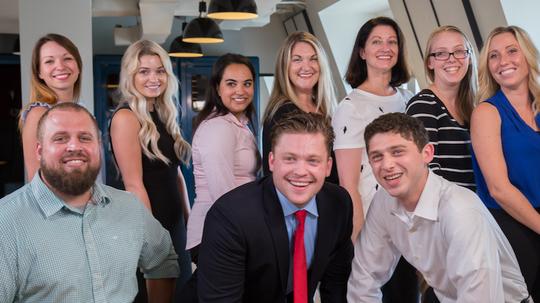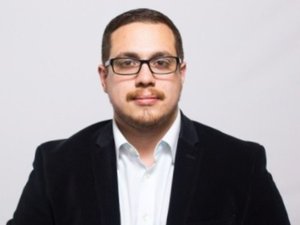
As we gear up to celebrate the 50 top innovators in the D.C. metro area, DC Inno is taking some time to sit down with a handful of our 50 on Fire winners to see what exactly makes them “on fire” in our DC Innovators series. Join us Nov. 1 at the National Union Building for the celebration.
The last thing any hospital patient wants is poor service. Being at a hospital, for whatever reason, is tough enough without having to worry about a cold bedside manner, poor communication or distracted front desk staff.
McLean, Va.-based Binary Fountain is relying on data analytics and patient feedback to change that.
Founded in 2004, the company developed a healthcare-specific natural language processor to comb through, analyze and understand human sentiment and apply it to patient feedback. Binary Fountain's product studies 37 different categories of the patient experience, from bedside manner to physician communication to front desk staff demeanors, and collects the information into an easy-to-read platform for hospitals to learn from.
Today, the platform tracks nearly 20 million patient reviews from online ratings and review sites, social media and other surveys on more than 500,000 physicians nationwide throughout 2,800 healthcare systems in the U.S.
DC Inno chatted with Andrew Rainey, Binary Fountain's executive vice president of strategy and corporate development, via email about the company's growth in the past decade and what's to come. The conversation has been edited for brevity and clarity.
How did you come to join Binary Fountain, and what aspects of the company drew you to it?
My first exposure to Binary Fountain came from a mentor of mine who knew the founders of the platform. I agreed to attend an informational meeting to gain a better understanding of the company and the technology and left inspired by Binary Fountain’s energy and mission — to digest, understand and analyze consumer feedback to improve the overall consumer (i.e. patient) experience.
Since joining the team as one of its first members, how have you seen your role change and adapt as the company has grown?
When I first started with Binary Fountain, we were a small startup team, so the founders and myself had many roles and wore many different hats (accounting, finance, product development, sales and marketing, etc.). As the company grew and we began to build out its teams (technology, sales, client success, etc.), I found myself getting more involved in the sales, partnerships and business strategy portion of the company. Today, Binary Fountain is an industry leader in the patient feedback management solutions market with a proven track record for implementing successful reputation management strategies for healthcare systems of any size.
What is it about Binary Fountain’s mission that deeply excites you each day?
Binary Fountain’s platform impacts the lives of consumers and healthcare providers on a daily basis. For consumers, our technology ensures their voices are heard when they submit feedback about their patient experience. For healthcare organizations, it’s providing actionable insights to make better-informed decision about their healthcare system and processes. At the end of the day, working at Binary Fountain is more than just building a brand, it’s knowing we all play an active role in improving the patient experience in healthcare systems across the country.
In the startup world, entrepreneurs have to learn to tackle the real problem at hand.
What are some of the entrepreneurial lessons you’ve learned along the way?
In the startup world, entrepreneurs have to learn to tackle the real problem at hand. To be successful, one has to be both resourceful and a problem solver with the ability to quickly adapt to change. As the first employee at Binary Fountain, I learned the significance of recruiting the right people and fostering a passionate and invested workforce. I’ve also seen the value in creating and maintaining a mission-driven business and culture for employees and leadership to stand behind.
How has being in the D.C. metro area benefited y’all as a health tech startup?
Washington, D.C. is the perfect place to launch a healthcare technology startup like Binary Fountain because we are surrounded by some of the largest health systems in the country. Being located near these healthcare giants is beneficial when targeting new clients and/or testing new products. Being located in the Washington D.C. metropolitan area also provides Binary Fountain with immediate access to valuable resources, clients and future partners.
What’s something you want to see change or improve in the D.C.-area tech ecosystem?
I think the D.C. tech community is extremely innovative, talented and vibrant; however, we’re not a very large community. In the next two-to-three years, I would love to see a steady increase of new, young, diverse talent pouring into the Washington, D.C. metropolitan area. I truly believe Washington, D.C. has the potential to foster one of the most creative tech communities on the East Coast.




